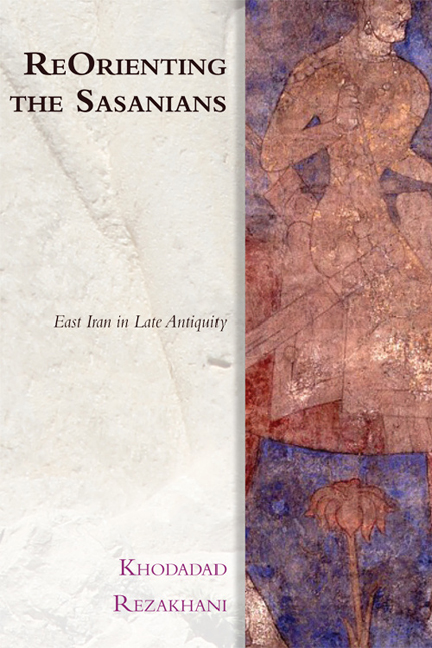Book contents
- Frontmatter
- Contents
- List of Illustrations
- Acknowledgements
- Series Editor's Preface
- Maps
- Preface
- Introduction
- 1 The Sasanians and the Sistanis
- 2 The Kushans and the Sasanians
- 3 The Kushano-Sasanians in East Iran
- 4 The Iranian Huns and the Kidarites
- 5 The Alkhans in the Southern Hindu Kush
- 6 The Hephthalite ‘Empire’ and its Successors
- 7 Sogdiana in the Kidarite and Hephthalite Periods
- 8 The Nēzak and Turk Periods
- 9 Tokharistan and Sogdiana in the Late Sasanian Period
- 10 General Conclusions and Postscript
- 11 Epilogue and Excursus on the Shahnameh
- Bibliography
- Index
Preface
Published online by Cambridge University Press: 07 December 2017
- Frontmatter
- Contents
- List of Illustrations
- Acknowledgements
- Series Editor's Preface
- Maps
- Preface
- Introduction
- 1 The Sasanians and the Sistanis
- 2 The Kushans and the Sasanians
- 3 The Kushano-Sasanians in East Iran
- 4 The Iranian Huns and the Kidarites
- 5 The Alkhans in the Southern Hindu Kush
- 6 The Hephthalite ‘Empire’ and its Successors
- 7 Sogdiana in the Kidarite and Hephthalite Periods
- 8 The Nēzak and Turk Periods
- 9 Tokharistan and Sogdiana in the Late Sasanian Period
- 10 General Conclusions and Postscript
- 11 Epilogue and Excursus on the Shahnameh
- Bibliography
- Index
Summary
Oriental studies in general, and Iranian studies in particular, has been a stronghold of micro-specialists for much of its history. Scholars in the tradition of European ‘classics’, concentrating on primary sources and trained vigorously in ancient and modern languages and other methods of source analysis, scrutinise sources that are ‘recovered’ from the east, looking for details of the lives of the distant Orientals. This is much the same way that scholarship has long been conducted for European history itself, going back to what sources were available and trying to reconstruct how things might have been. In this approach, ‘history’ was something that emerged from the convergence of knowledge created by philologists, archaeologists, scholars of religion, numismatists, and other scholars concerned with ‘primary’ sources.
However, in the nineteenth and twentieth centuries, ‘history’ also emerged as an independent field, establishing its own methodology and approach to the past. This ‘new history’, quite apart from the idea of history as chronography and concern with events, has in a sense become the framework for most other means of producing ‘historical knowledge’. The devices used by this new history are varied and borrowed mostly from social sciences rather than ‘humanities’ – as much as the division is an artificial one mostly valid in the Anglophone world. This is an approach to the past that takes into consideration not only the evidence of the past – ‘the sources’ – but also the idea of the past, the ‘narrative’ which gives each of these sources a purpose and a place within a larger framework. The conflict between the two types of history, the two approaches, has never made for a very smooth result, but at least in the case of European history, it seems to have been accepted that a (new) historical approach is a valid form of inquiry, and it has in fact become the primary form of historical research in the ‘European’ context, defined broadly.
- Type
- Chapter
- Information
- ReOrienting the SasaniansEast Iran in Late Antiquity, pp. 1 - 6Publisher: Edinburgh University PressPrint publication year: 2017



